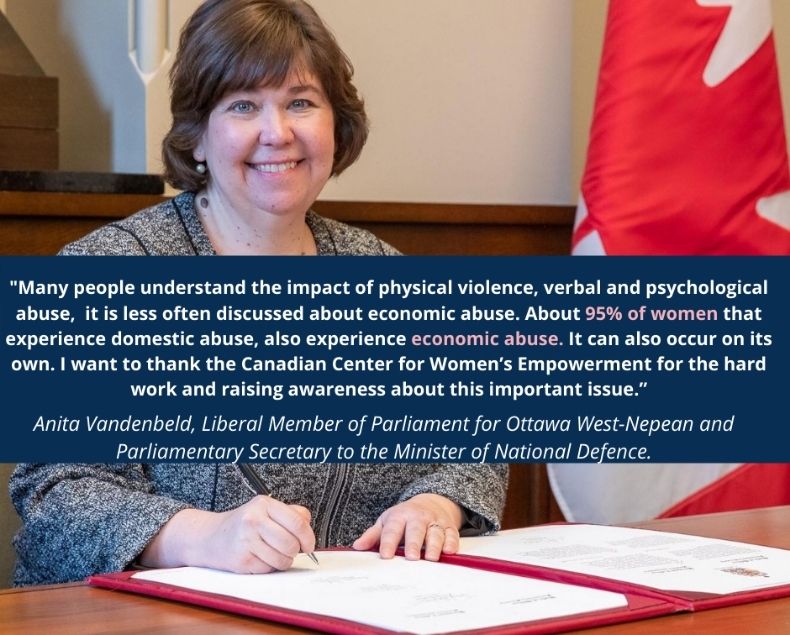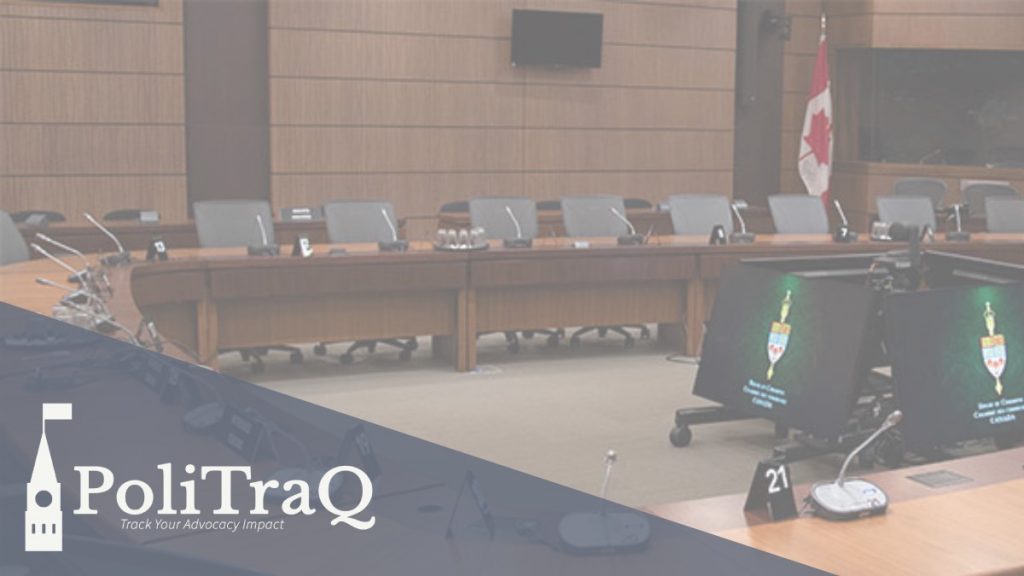FEDERAL GOVERNMENT
Active work for legislative change
We advocate for the removal of structural financial, legal and economic obstacles that impact the economic empowerment of survivors. We work together with the National Task Force for Women’s Economic Justice, policymakers, consumer lawyers, financial institutions, victims, professional service providers, and women’s organizations to coordinate a national, cross-sectoral approach to understanding, addressing, and preventing Economic Abuse.

1. Legislative advocacy
CCFWE welcomed the amendments to the Divorce Act in March 2021, but calls on the federal government to broaden the definition of family violence from the non-exhaustive reference of Financial Abuse to Economic Abuse, which encompasses all forms of Economic Abuse including economic control, employment sabotage, and economic exploitation. Our petition was closed due to the dissolution of Parliament for the 2021 Election.
A new petition has begun in support of Keira’s Law Bill C-233. This Bill would amends the Criminal Code to require a justice, before making a release order in respect of an accused who is charged with an offense against their intimate partner, to consider whether it is desirable, in the interests of the safety and security of any person, to include as a condition of the order that the accused wear an electronic monitoring device. In addition, the Bill would also amend the Judges Act to provide for continuing education seminars for judges on matters related to intimate partner violence and coercive control. Please lend your support by signing the C-233 petition. Read our statement to supports Bill C -233 (Keira’s Law) and stresses the importance of addressing Economic Abuse and Post Separation Abuse
in 2023/2-24 CCFWE has petitioned the House of Commons to designate November 26th as National Economic Abuse Awareness Day in Canada through petition e-4660. The petition is scheduled to be tabled on February 29th at 10:00 am.
2. Participation in public engagement consultations
CCFWE actively engages in public consultation processes with governmental entities, community-based organizations, survivors, financial institutions, health care providers, consumer lawyers, academics, advocates and other institutions to share challenges and solutions to address Economic Abuse.
In February 2021, CCFWE led public consultations with gender-based violence organizations and financial institutions across all provinces of Canada. Through these consultations, CCFWE proposed policy recommendations to address Economic Abuse in the National Action Plan (NAP) to End Gender-Based Violence in Canada (see pages 247, 256, and 240 for direct references). This is a testimony of CCFWE’s collective effort to champion grassroots activism and create systemic change surrounding Economic Abuse in policy, education, and research. Read our 13 policy recommendations from consultations to inform Canada’s National Action Plan to end GBV and Economic Abuse.
CCFWE also participated in the Financial Consumer Agency of Canada, National Financial Literacy Strategy 2021-2026 to include Economic and Financial Abuse. We will continue to participate as early adopters. CCFWE has submitted a policy recommendation for the Financial Consumer Agency of Canada, Banks, Credit Unions, and Financial Institutions on Addressing Economic Abuse in the Context of Gender-Based Violence in Canada. Read the full report here.
3. Statement and submissions at House of Commons
- 2020: MP Anita Vandenbeld raised awareness of the economic abuse often faced by women in abusive relationships. Watch the full statement here.
- 2021: CCFWE was invited to submit policy recommendations to the House of Commons, Status of Women Committee to address Economic Abuse in Canada. Read our submission for House of Commons the Status of Women Committee to end Economic Abuse.
- 2022: CCFWE was invited to testify at the House of Commons Status of Women Committee to contribute to the study of Intimate Partner Violence in Canada. Read our Statement at the House of Commons.
- 2023: CCFWE was invited to speak at the House of Commons Status of Women Study in Women’s Economic Empowerment. Read our statement at the House of Common
4. Support of Private Member’s Bills
In our opinion, the following private member’s bills would be beneficial to assist in making improvements to women’s empowerment when the legal system is involved in the separation of a victim from their abuser.
- Bill 41 – Protection from Coerced Debts Incurred in relation to Human Trafficking Act, co-sponsored by Lucille Collard, Liberal Member of Provincial Parliament (MPP) for Ottawa-Vanier. Bill 41 is a crucial step towards providing protection and support to individuals who have been exploited through human trafficking. Coerced debts, often incurred under duress or through deceptive practices, further entrap victims in cycles of exploitation and abuse. To advocate for this bill, we were invited to address the Ontario Legislature to propose expanding its scope to include victims of economic abuse. Explore our submission here.
- C-202 – An Act to amend the Criminal Code (controlling or coercive conduct) sponsored by Randall Garrison (Esquimalt—Saanich—Sooke)
- C-207 – An Act to amend the Canadian Bill of Rights (right to housing) sponsored by Rachel Blaney (North Island—Powell River)
- S-205 – An Act to amend the Criminal Code in respect of interim release and other orders related to intimate partner violence offences. The enactment also provides for recognizance orders to be made when there is a reasonable fear of domestic violence.
- S-233 – An Act to develop a national framework for a guaranteed livable basic income sponsored by Senator Kim Pate
- C-233 – An Act to amend the Criminal Code and the Judges Act (violence against an intimate partner) sponsored by Anju Dhillon (Dorval—Lachine—LaSalle)–
5. Call to action to end Economic Abuse during the 44th Federal Election of Canada
In collaboration with its National Task Force for Women’s Economic Justice, CCFWE drafted a commitment letter outlining its policy recommendations. More than 30 Canadian political leaders at all levels of government, including Members of Parliament, Members of Provincial Parliament, and City Councilors, have signed the commitment letter pledging to support survivors of Economic Abuse and to incorporate CCFWE’s policy recommendations within their policy agenda and frameworks.
6. Meetings with elected Members of Parliament to address Economic Abuse
CCFWE had meetings with elected members of Parliament including MP Iqra Khalid (Member of Parliament, Mississauga—Erin Mills, Ontario; Member of the National Security and Intelligence Committee of Parliamentarians), Hon. Mona Fortier (Member of Parliament, Ottawa—Vanier, Ontario; President of the Treasury Board) and MP Anita Vandenbeld (Member of Parliament, Ottawa West—Nepean, Ontario; Parliamentary Secretary to the Minister of International Development). CCFWE shared the challenges, barriers and policy gaps surrounding Economic Abuse in Canada.


